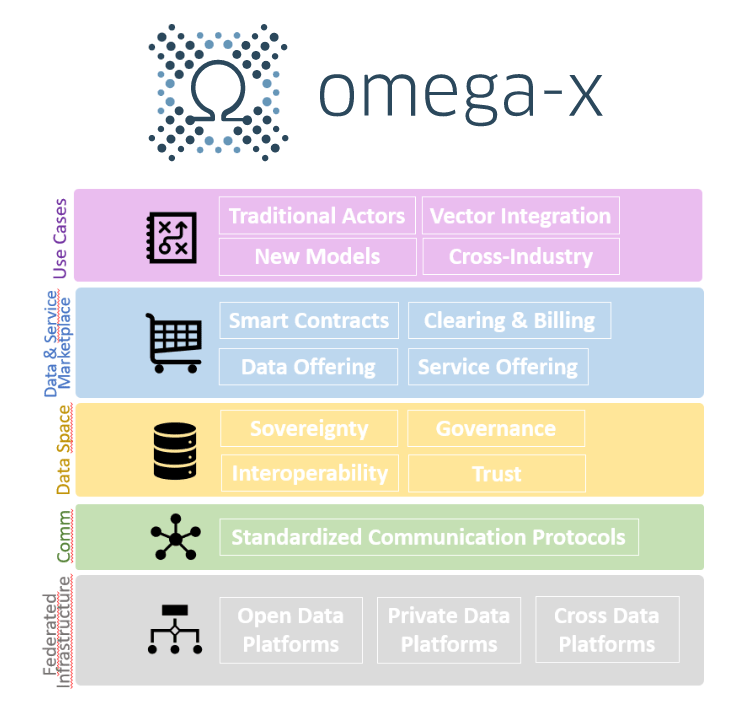Data is the new oil, and data sharing is the key to unlocking its value. However, data sharing also poses significant challenges in terms of security, privacy, governance, and interoperability. OMEGA-X’s architectures aims at enabling data sharing across different domains and platforms without compromising on these aspects. The main component of this architecture is the Eclipse Dataspace Connector (EDC).
The Eclipse Dataspace Connector is an open-source project that aims to provide a solution for data sharing while keeping security, privacy and governance. EDC is a framework that allows building secure and scalable data spaces, which are networks of data providers and consumers that agree on common rules and standards for data exchange. EDC leverages existing dataspaces paradigms such as IDS (International Data Spaces) or Gaia-X to facilitate data sharing across different cloud and edge environments.
EDC is designed to be extensible starting with a small core component and extensions that provide additional functionalities. The core component provides the basic functionality for creating and managing data spaces, such as identity management, policy enforcement, data transfer, and auditing. The extensions provide additional features that can be plugged into the core, such as connectors for specific cloud platforms or protocols. Moreover, there is a samples repository that provides examples of how to use EDC in various scenarios, such as energy, industrial, IoT or healthcare.
EDC is modular, flexible, and extensible. It can be customized and integrated with different systems and applications according to the specific needs and requirements of each data space. EDC also follows the principles of open source and open standards, ensuring transparency, interoperability, and compatibility with other data sharing initiatives.
By using the EDC as a common building block, the Omega-X project aims to create a federated and scalable data space infrastructure that can support cross-domain and cross-border data collaboration. The project also intends to contribute to the further development and adoption of the EDC fostering a European data economy that is based on trust, sovereignty, and Innovation.

More information about EDC can be found on the site of the Eclipse Foundation